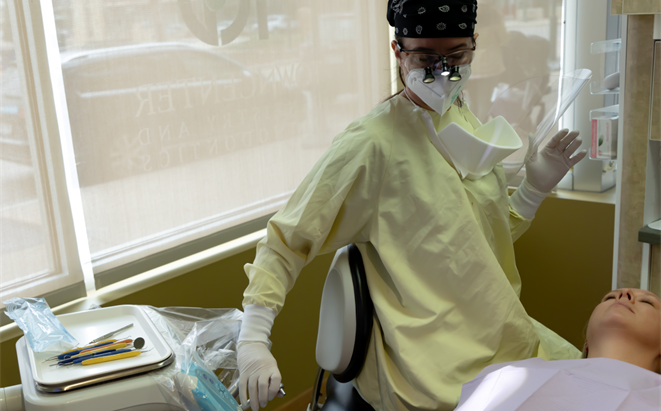5 Habits That Are Killing Your Body
- Steph Botts
- Feb 2, 2024
- 2 min read
Bookmark this post! Lots of tips here:
Ergonomics is a complex topic with many factors. So I have simplified things down to the top 5 most common ergonomic mistakes I see in the operatory while doing my assessments.
1. Not establishing neutral posture

It's crucial we set ourselves up for success before even touching the patient. Keep your head back with your ear in line with your shoulder and hip. If you're seated, keep your hips above your knees and feet flat on the floor. Ideally, the arms will be close to the sides with elbows bent at 90 degrees. For more information on neutral and how to adjust your stool, check out my free operator positioning course.
2. Incorrect patient positioning
Our patients' position dictates ours. If their head is too high, we are prone to abducting our arms (chicken wing) and elevating our shoulders. Not to mention bending, twisting, hunching, and reaching. It's amazing how many of these issues disappear by just getting the patient into the correct position.
The maxillary and mandibular occlusal planes must be in the correct position for us to work comfortably. This can be challenging, but I use specific cushions to help patients be more comfortable AND place the occlusal planes correctly. Use code Polished to get 10% off.
I use the 3.5" iCore Memory Headrest daily!
For more information on patient positioning, including full videos, please check out my on-demand patient positioning course.
3. Twisting

Twisting from the low back is an ergonomic no-no. I see this often and it can be a nasty habit! Something to remember: try to have EVERYTHING on your body pointing in one direction. That means your head, shoulders, torso, hips, legs, feet are all pointing in the same direction. When you find your shoulders are pointing one way but your legs in another, that's a twist.
4. Reaching

Of course, we will need to reach for things, but we want to be mindful of how far we are reaching. Avoid the full arm extended reach; this will fatigue and potentially damage your elbow, shoulder, and neck if done repeatedly. Tip: keep your most frequently used items, supplies, and instruments within easy reach.
5. Excessive pinch force

How we hold our instruments, handpieces, suction, air/water, and materials can affect our entire body. We like to use the "death grip," which significantly strains our hands, wrists, forearms, elbow, shoulders, and neck. Tip: try to hold things with as little force as necessary, and perform microbreaks when you know you've been holding on to something for a while.
I hope this helps you to assess your own habits in the operatory better. I am always here for personalized help with individualized assessments or my on-demand courses.












Comments